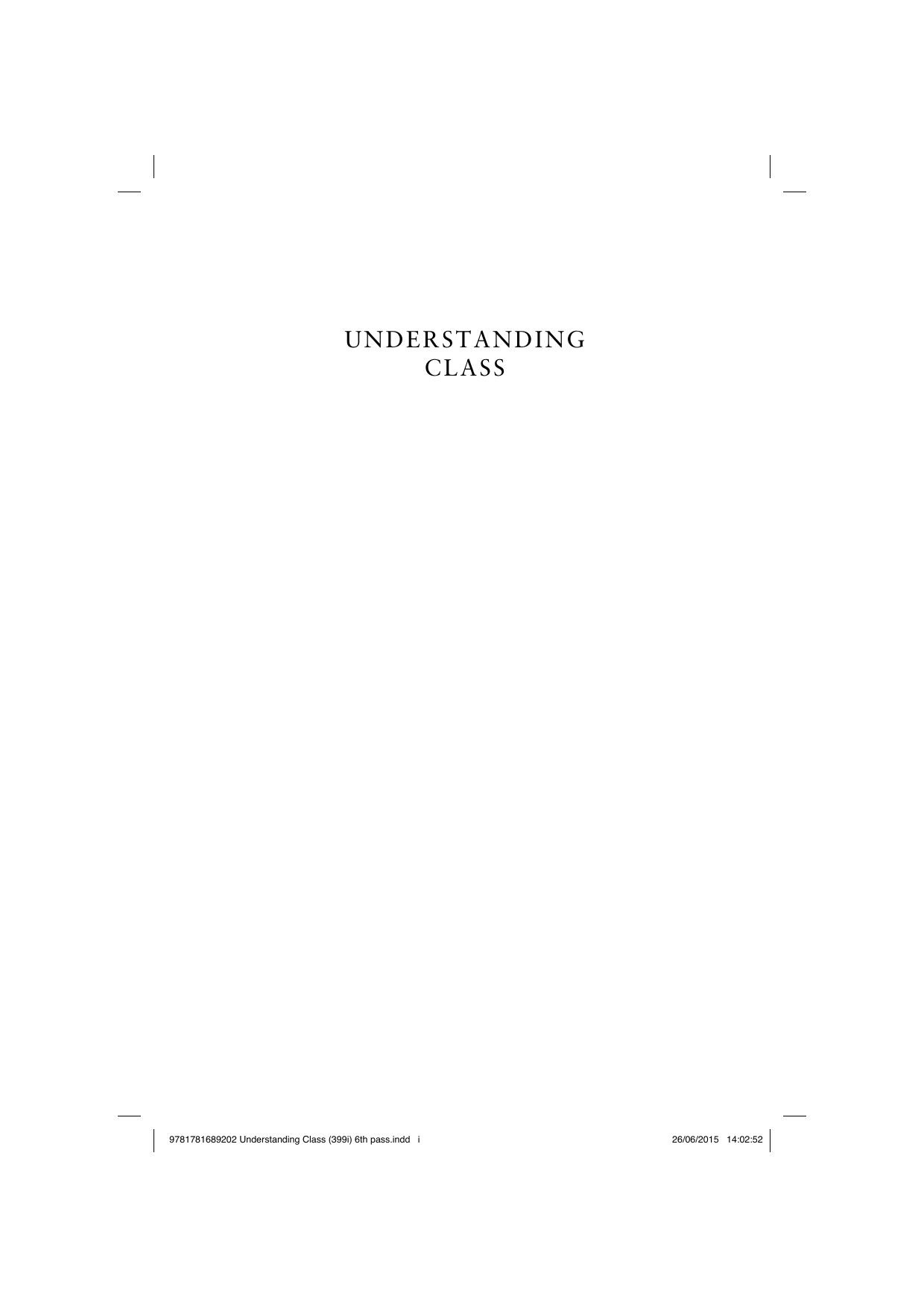Understanding Class by Erik Olin Wright

Author:Erik Olin Wright [Wright, Erik Olin]
Language: eng
Format: epub, pdf
Publisher: Verso
Published: 0101-01-01T00:00:00+00:00
This eBook is licensed
7
THE AMBIGUITIES OF CLASS IN THOMAS PIKETTY’S CAPITAL IN THE TWENTY-FIRST CENTURY
Until quite recently, the only context in which inequality was treated as a “problem” in the mass media was in discussions of opportunities and rights. Equal opportunity and equal rights are deeply held American values, and certain kinds of inequalities were seen as violating these ideals. Racial and gender discrimination are problems because they create unfair competitive advantages for some people and disadvantages for others. They violate the ideal of a “level playing field.” Poverty, of course, has for a very long time been publicly viewed as an important problem, but even here the main issue was not the magnitude of the distance between the poor and the rich, but the absolute material deprivations of people living in poverty, especially of children, and how this harms their life chances.1 The War on Poverty led to the creation of an office of economic opportunity, rather than an office for the reduction of inequality. The way poverty constitutes a disadvantage was thus of great concern, but public discussion gave almost no attention to the degree of inequality of resources or conditions of life across the income distribution as such. Inequality was not an important, publicly recognized problem.
Even among scholars, discussions of inequality focused until recently almost entirely on social mobility and the social production of advantages and disadvantages. There was a great deal of concern about inequalities in the way people gained access to social positions, and certainly much research on how hard life was for people living below the poverty line, but almost no concern with the magnitude of inequalities among the positions themselves. Inequality was not an important, academically recognized problem.
This absence of discussion of the magnitude of the economic inequality was largely shared by both conservatives and liberals. To be concerned with the distance between the rich and the poor and the “middle class” seemed to reflect envy and resentment. As long as fortunes and high incomes were acquired legally—by playing by the rules—the degree of inequality this generated was unobjectionable. And what’s more, as many people continue to argue even today, in the long run the high incomes of the wealthy benefit everyone, since it is out of this high income that new investments are made, and investment is a necessary condition for the proverbial rising tide that lifts all boats. Inequality was not an important, politically recognized problem.
This situation has changed dramatically. Today, talk about inequality in everywhere. The media, the academy, and politicians are giving increasing attention to the problem of inequality in its own right. The slogan of the Occupy Movement exemplifies this: the 1% versus the 99% indicates an antagonism between those at the very top of the income distribution and everyone else. Politicians and pundits speak of the dangers of increasing inequality. And scholars across disciplines have begun to study more systematically the changing contours of inequality.
This is the context in which Thomas Piketty’s book Capital in the Twenty-First Century appeared, made such a stir, and became such an unlikely best seller.
Download
This site does not store any files on its server. We only index and link to content provided by other sites. Please contact the content providers to delete copyright contents if any and email us, we'll remove relevant links or contents immediately.
| Anthropology | Archaeology |
| Philosophy | Politics & Government |
| Social Sciences | Sociology |
| Women's Studies |
The Secret History by Donna Tartt(19011)
The Social Justice Warrior Handbook by Lisa De Pasquale(12179)
Thirteen Reasons Why by Jay Asher(8878)
This Is How You Lose Her by Junot Diaz(6866)
Weapons of Math Destruction by Cathy O'Neil(6253)
Zero to One by Peter Thiel(5778)
Beartown by Fredrik Backman(5723)
The Myth of the Strong Leader by Archie Brown(5487)
The Fire Next Time by James Baldwin(5418)
How Democracies Die by Steven Levitsky & Daniel Ziblatt(5207)
Promise Me, Dad by Joe Biden(5137)
Stone's Rules by Roger Stone(5071)
A Higher Loyalty: Truth, Lies, and Leadership by James Comey(4942)
100 Deadly Skills by Clint Emerson(4907)
Rise and Kill First by Ronen Bergman(4766)
Secrecy World by Jake Bernstein(4735)
The David Icke Guide to the Global Conspiracy (and how to end it) by David Icke(4693)
The Farm by Tom Rob Smith(4496)
The Doomsday Machine by Daniel Ellsberg(4477)
